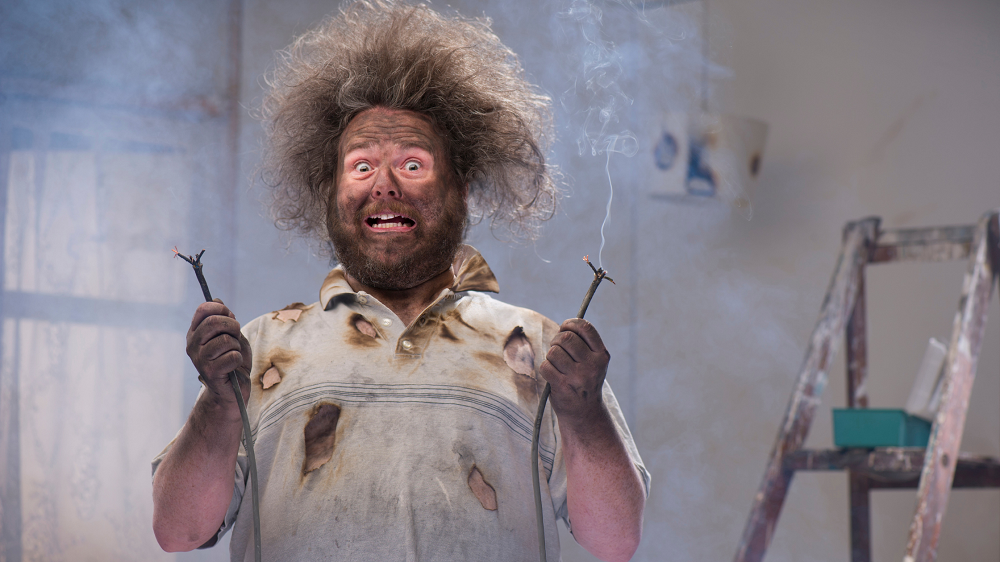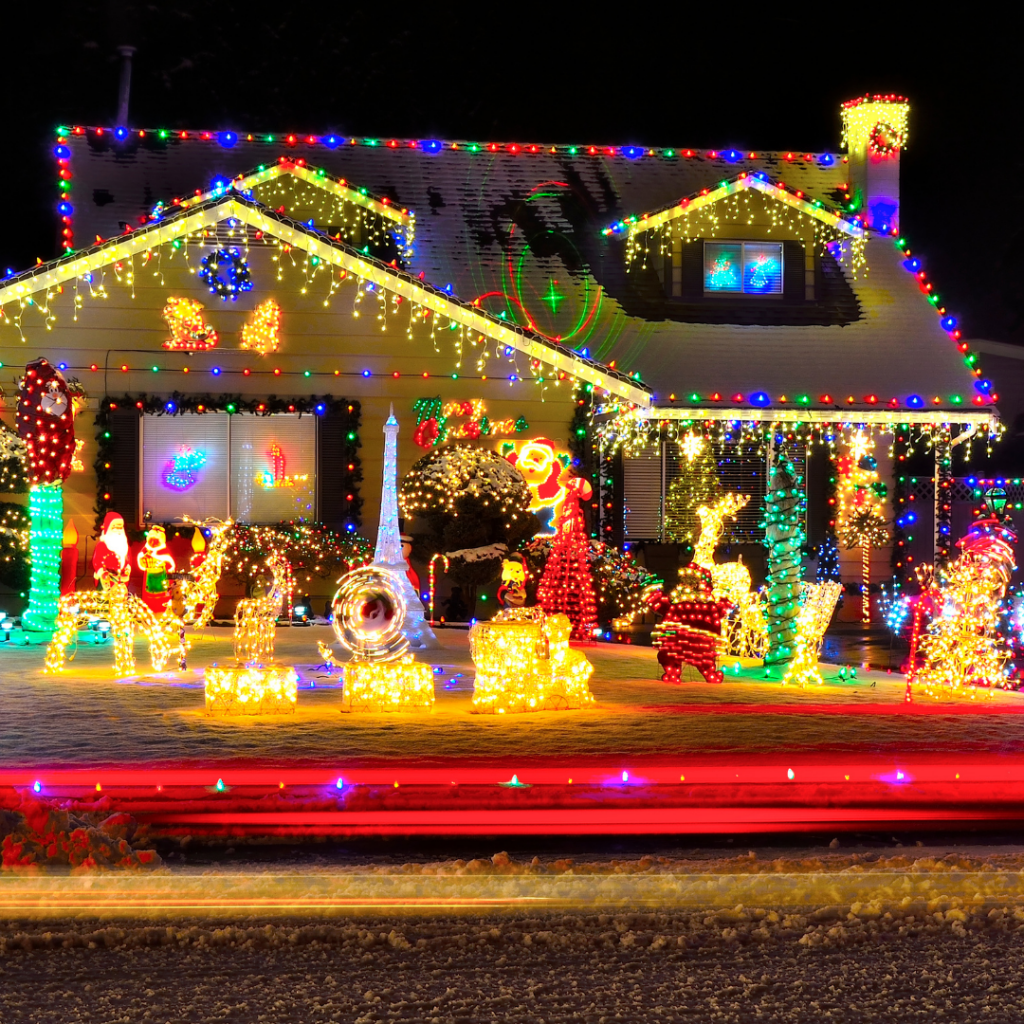It’s almost time to get up in the loft or rummage in the garage for the box of Christmas lights and decorations. But before you start plugging everything in, think about electrical safety and any precautions you might need to take to protect your home and family this festive season.
We all have traditional favourites that we bring out year after year, but when it comes to anything electrical you need to carry out a few simple safety checks before you plug them in. Cables can easily become frayed or damaged, wires can become detached, and old bulbs can overheat and melt fittings so carefully examine everything first.
Check Your Lights
Christmas lights are often stored in a tangled mess which makes damage more likely and there’s more risk if they’re kept somewhere damp. Battery powered lights should have the power source removed before being packed away or the batteries are likely to corrode. The potassium hydroxide that leaks from batteries is highly toxic and can cause skin irritation, damage to your eyes and respiratory problems.
Old-style Christmas lights get hot whereas new LED bulbs operate at very low voltage, reducing the chance of an electric shock and using 80-90% less electricity. They’re far less likely to cause a fire as they stay cool to the touch and they’re much cheaper to run so it’s worth considering investing in new lights if yours have traditional filament or lantern bulbs. Make sure you buy from a reputable supplier and that they carry the CE safety mark.
Choose The Right Equipment
Many people like to decorate the outside of their homes with lights but it’s important that they are specially designed to be used in all weathers and are plugged into a socket with a residual current device (RCD) to prevent shocks and fires. All lights should always be switched off when you are out of the house and overnight – better still, put them on a timer so you don’t forget.
Don’t Get Overloaded
It’s tempting to overload sockets and extension leads at Christmas when you want to plug in lots of lights, but this is a serious fire risk and should be avoided. Supplement mains lights with battery-powered sets and consider buying rechargeable batteries to save money. If you have an imitation Christmas tree, make sure it’s fire resistant – and if it’s real don’t let it dry out or it’s a bigger fire risk (though you need to be careful when watering a tree with lights on!).
Christmas Statistics
Statistically, you’re more likely to have a fire-related incident over Christmas and the season is responsible for various festive injuries and even deaths:
- Christmas tree lights injure nearly 350 people annually
- 50% of fire-related deaths occur over Christmas
- 26 people died between 1997 and 2010 in the UK of electrocution while watering their Christmas tree with the lights on
- About 260 home fires begin with Christmas trees each year
Stay Safe
To make sure you keep yourself and your family safe over the Christmas period, check smoke alarms are working and do a dry run of your home fire escape plan to ensure everyone knows what to do.
For more advice about home fire safety including smoke and fire alarms and fire extinguishers, call Absolute Protection Group on 01622 437838.



